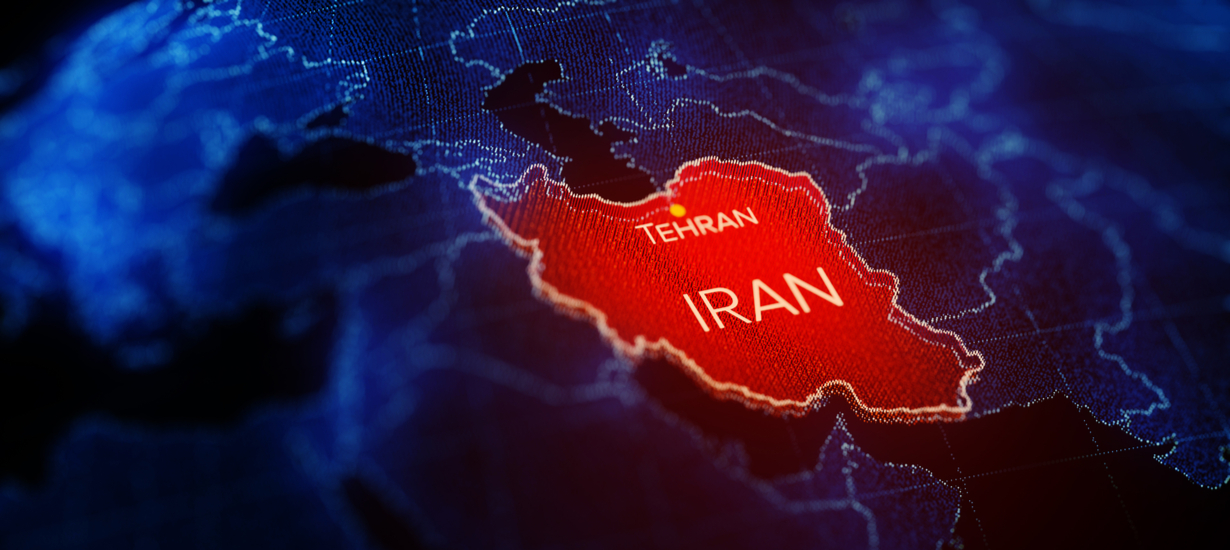As Taliban forces arrived at the Afghan capital Kabul on the 15th of August, levels of concern were heightened across the region, especially in neighboring countries. None were more concerned than Iran, who is likely to feel the impact of the rise of the Taliban, as Afghanistan is crucial to its strategic and vital interests. Hence, Iran has moved to play the role of a mediator between the Taliban and the other clans in Afghanistan, keeping channels of communication open.
Iran’s concern with Afghanistan not only relates to its strategic interests and national security, but also with to its interests in other countries in which it plays an active role, such as Syria. Iran has been deeply involved there since 2011 and has trained and armed ethnic militias to fight alongside regime forces, against the opposition and various armed factions.
One of the militias Iran has trained in this respect is the Shia “Fatemiyoun Brigade”, recruited mainly from the Shia Afghan migrant and refugee population in Iran. Iran trained them, creating a militia to fight alongside the Syrian army with Bashar Al Assad, helping turn the tide in his favor after the opposition initially gained the upper hand.
Will the “Fatemiyoun Brigade” remain in Syria?
As analysts have pointed out – even prior to the US announced its withdrawal from Afghanistan and the deal with the Taliban in February 2020 – the Afghan militias in Syria were expected to return to their homelands soon. The pressures of US sanctions on Iran are making it difficult to continue supporting them, and their return would help Iran maintain good relations with the Taliban. However, Iran is still pondering the future of this militia, as it is currently focused on the rise of the Taliban and how it could impact Iranian interests elsewhere, such as in Syria. Iran needs to take various issues into consideration, these include:
1- The Balance of Power in Syria: For the last 3 years, the balance of power has shifted to the Syrian regime of Bashar Al Assad with the help of Iran and Russia. However, Iran is looking to maintain its military presence in Syria in the future, as was illustrated by the recent celebration of the graduation from the “Fatemiyoun Brigade’s” training school, of a class comprised of 64 fighters.
2- Increased Tensions with Russia: The recent shift in power in favor of the Assad regime, has brought to the surface differences between its two allies, Russia, and Iran. Moscow has sought to maintain open channels with all parties involved in Syria, including Israel, who continues to bomb strategic Iranian targets within Syria. Iran is increasingly resentful of Russian presence and actions in Syria and is working to maintain all the gains it has made in that country over the past decade.
3- The Stumbling Negotiations in Vienna: Negotiations in Vienna regarding a new deal with Iran have recently floundered, and the 7th round of negotiations have not yet been set up, although there are indications they may be held in September, following the formation of the new Iranian government. Iran continues to refuse to back down from supporting its allies in the region, or from continuing in its ballistic missile program. It appears this has led Iran to pause the transfer of the Afghan militia back to its homeland, believing this could send the wrong message, implying Iran is capitulating to western demands.
4- Other Alternatives for dealing with developments in Afghanistan: If Iran wishes to deploy a militia within Afghanistan, it could once more recruit from the Afghan population present on its soil, as it did to form the “Fatemiyoun Brigade” in the first place, using some of this militia’s members to help in this respect. It could also potentially turn to its allies inside Afghanistan. Iranian reports have indeed indicated that Iran is currently organizing militant groups there.
Iran will most likely keep the two strategic issues of Afghanistan and Syria separate, at least in the short run. Any change to this policy would be linked to developments inside Afghanistan, whether it descends once more into civil war, and whether the Taliban take any actions Iran deems detrimental to its national interest.

